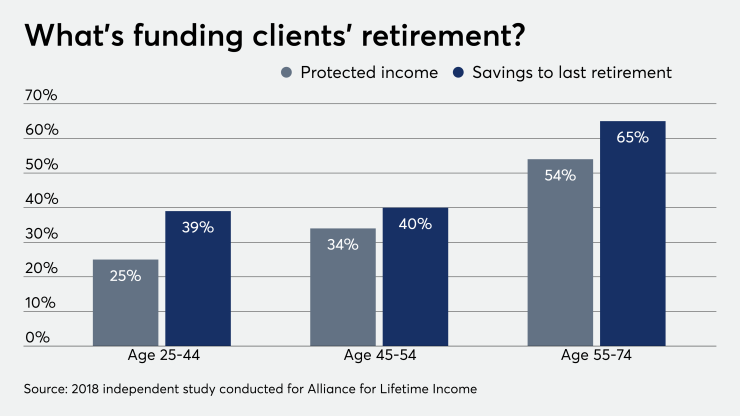Welcome to Retirement Scan, our daily roundup of retirement news your clients may be talking about
Retirees will face taxes on their income from traditional retirement accounts, pension, annuity and other pretax retirement accounts, however income from Roth accounts will remain tax-free, according to this Forbes article. A portion of Social Security benefit may be taxable if their combined income plus half of their retirement benefit will exceed a certain threshold. Aside from income taxes, retirees will also pay consumer taxes and may face a 3.8% Medicare surtax.
Aside from holding investments in a Roth, the bucket strategy is another effective way for clients to reduce RMDs in retirement and the tax bite on these withdrawals, writes a Forbes contributor. The bucket strategy will enable retirees to create a source of steady income while allowing a chunk of their investments to generate returns, he writes. "To many advisors, this approach combines both safety and a sense of control for you. The bucket stratagem can be a hassle, however, as you must continually keep track of where you are placing your money."
There are a few blind spots that retirees are advised to avoid to maximize their Social Security benefits, according to this article in TheStreet. For starters, seniors who want to boost their retirement benefits should defer their claims as long as they can while they may qualify for survivor benefits as early as age 60. Retirees also have to collect their own retirement benefits for their spouse to apply for spousal benefit on their record, while divorced spouses are eligible to survivor and spousal benefits.
They’re more expensive than their passive peers. But did they beat their benchmarks?
Traditional retirement accounts offer tax benefits, such as pretax contributions and tax-deferred growth on investments, but these accounts will be subject to RMDs, according to this article in Motley Fool. The mandatory withdrawals are treated as taxable income and can boost their tax bill in retirement. Clients can minimize these withdrawals by converting some of their traditional assets into a Roth and direct more of their savings to an HSA. Retirees may also continue working to defer the RMDs from their 401(k)s.







